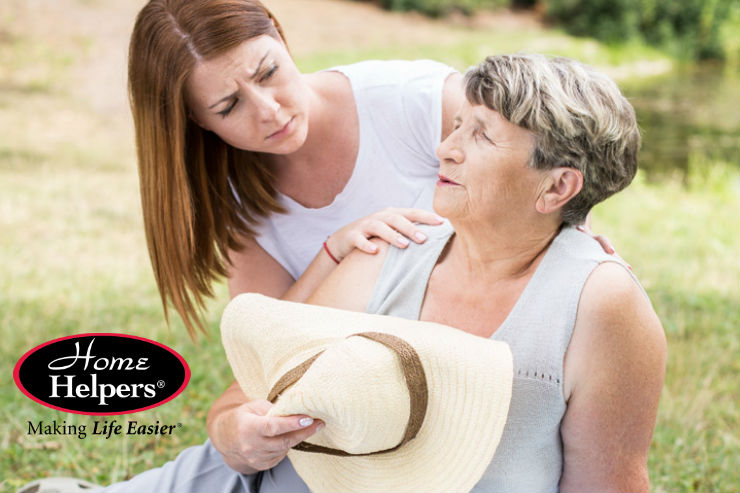Heat stroke can be deadly in seniors. As the summer heats up, so does the risk for heat stroke. It is a potentially fatal condition and can happen before they realize they are in the danger zone. As we age, out bodies become less responsive to heat, so it’s important that seniors understand the signs of a heat stroke. Some medications, such as beta blockers used to treat high blood pressure can make it harder for the body to regulate heat.
So just what is heat stroke and how does it happen?
When the body is overheating, it can reach temps of 104 degrees and cause major organs to begin failing if not treated quickly. It should be considered an emergency that requires immediate medical intervention. If left untreated, it can lead to organ failure and death.
5 tips for preventing a heat stroke in seniors
- Be familiar with the health conditions of your senior loved one. Keep a list handy of all medications and ask their doctor about things that could interact with heat, such as low-sodium diets or fluid pills. (Diuretics) You’ll want to know the best plan of action to restore fluids and cool the body down. Keep in mind that some people can’t handle copious amounts of water, so IV fluids are critical.
- Dress appropriately and stay hydrated. Encourage your senior loved ones to drink plenty of water during the summer months, especially if they are going to be outside. Keep in mind that very cold water can bring on cramps, so staying hydrated with cool or room temperature water is best. Sports drinks are often not a good idea for seniors due to the high sugar content. Have your senior adult wear clothing that is light weight, light in color to deflect excess heat, and very breathable. If they feel chilly while indoors, a small lap blanket can be helpful.
- Keep your home cool. Utilize inexpensive methods for keeping cool in the house, such as curtains that block excess light and heat. This can make a huge difference in the temperature in the house, as well as your energy bills!
- Keep cool outside. You may need to go someplace that has good air conditioning with your older adult during the hottest part of the day. If their home is too warm or doesn’t have adequate air conditioning, they may enjoy places such as a mall, library or restaurant.
- If you use fans, use caution. Fans offer some relief from the heat but can sometimes trick the body into feeling much cooler when the danger of heat stroke is still there. A good rule of thumb is to stick with air conditioners whenever possible, especially if the temperature outside is above 85 degrees.
Signs of heat stroke should always be taken seriously. Seek medical attention immediately if you suspect your senior loved one has gotten overheated. You may just save their life!
For more helpful tips on how to keep your seniors safe at home, visit our senior home care blog.

